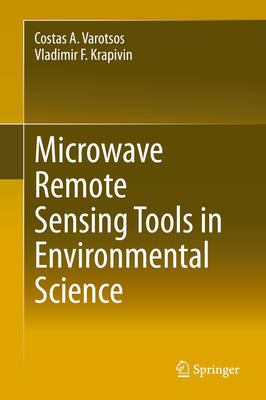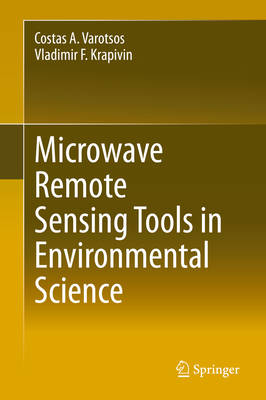
- Afhalen na 1 uur in een winkel met voorraad
- Gratis thuislevering in België vanaf € 30
- Ruim aanbod met 7 miljoen producten
- Afhalen na 1 uur in een winkel met voorraad
- Gratis thuislevering in België vanaf € 30
- Ruim aanbod met 7 miljoen producten
Zoeken
Microwave Remote Sensing Tools in Environmental Science
Costas A Varotsos, Vladimir F Krapivin
Hardcover | Engels
€ 179,45
+ 358 punten
Uitvoering
Omschrijving
This book gives new insight to the study of the global environmental changes using the ecoinformatics and microwave remote sensing tools together with the adaptive-evolutionary technology of geoinformation monitoring. The main advantage of this book consists in the accumulation of the interdisciplinary scientific knowledge for the parameterization of the global biogeochemical cycles and other environmental processes in the context of globalization and sustainable development. In this regard, the crucial global problems of the dynamics of the climate-nature-society system have been considered and the key problems of ensuring its sustainable development have been addressed. An analysis of the present trend in changing ecological systems has been discussed, including different types of forest ecosystems and ocean aquatories. The emphasis has been given to the accomplishment of the global geoinformation monitoring, which could provide a reliable control of the environmental processes development with reliable prognostic estimates of the consequences of human activities. A new approach to the numerical modelling of the climate-nature-society system has been presented and demonstrative results have been given about the modelling of the dynamics of this system‟s characteristics, in cases of realization of some scenarios of the anthropogenic impacts to the biogeochemical cycles, the land ecosystems and oceans. Methods and algorithms for the big data manipulation and processing in the remote sensing environmental monitoring systems have been described.
Specificaties
Betrokkenen
- Auteur(s):
- Uitgeverij:
Inhoud
- Aantal bladzijden:
- 468
- Taal:
- Engels
Eigenschappen
- Productcode (EAN):
- 9783030457662
- Verschijningsdatum:
- 10/06/2020
- Uitvoering:
- Hardcover
- Formaat:
- Genaaid
- Afmetingen:
- 196 mm x 239 mm
- Gewicht:
- 816 g

Alleen bij Standaard Boekhandel
+ 358 punten op je klantenkaart van Standaard Boekhandel
Beoordelingen
We publiceren alleen reviews die voldoen aan de voorwaarden voor reviews. Bekijk onze voorwaarden voor reviews.











